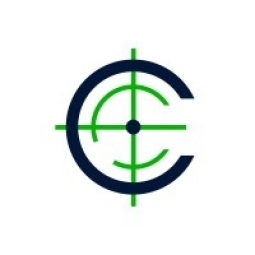Customer Company Size
SME
Region
- Europe
Country
- United Kingdom
Product
- Corero’s First Line of Defense
Tech Stack
- Cloud Hosting
- DDoS Protection
- Network Security
Implementation Scale
- Enterprise-wide Deployment
Impact Metrics
- Customer Satisfaction
- Brand Awareness
Technology Category
- Cybersecurity & Privacy - Network Security
Applicable Industries
- Telecommunications
- Finance & Insurance
- Healthcare & Hospitals
Applicable Functions
- Business Operation
Use Cases
- Cybersecurity
Services
- System Integration
About The Customer
Hyve is a leading UK IT service provider specializing in mission-critical cloud hosting. Established in 1999, Hyve provides high quality hosting solutions for its valued clients who span a wide range of industries, from technology and telecommunications to healthcare and financial services. Client requirements range from a basic but reliable Web presence through to high-traffic, mission-critical systems demanding maximum levels of performance and security. By providing the hosting industry’s best hardware and unbeatable levels of connectivity, uptime and security, Hyve represents the pinnacle of quality available in today’s hosting market. Hyve solutions are built using the latest cutting-edge technology while maintaining a focus on customer budget.
The Challenge
Hyve, a leading UK IT service provider specializing in mission-critical cloud hosting, was looking to stand out among competitors in the large UK market. The company aimed to provide the utmost security to its customers while also ensuring continued availability through unhindered access to their systems. In today’s environment of increasingly sophisticated and common attacks, Hyve cannot deliver the performance and satisfaction its customers demand without addressing security threats that plague organizations the world over. To mitigate these risks and meet customer expectations, Hyve’s environment has multiple layers of defense, is ISO-27001 and PCI-DSS certified, and has been architected to prevent client cross-contamination if a problem does occur. Nevertheless, Hyve was still challenged by weaknesses in individual clients’ hosted environments. Being a proactive, security driven company, Hyve have looked for another line of defense to better protect the entire IT environment.
The Solution
Hyve evaluated two anti-DDoS products — those from RioRey and Corero. They chose Corero’s First Line of Defense as it stops all unwanted traffic at the perimeter, from DDoS to zero-day to server-targeted attacks. This made Corero much more attractive as it was a complete solution. It not only gives Hyve total DDoS protection against the volumetric and low and slow attacks but it also adds this beautiful additional protection that dramatically improves the value of the devices for customers and themselves. Using the Corero First Line of Defense, Hyve is able to protect all systems within its infrastructure. The Corero devices are installed in front of Hyve’s firewall layer, First Line of Defense filters out attack and other unwanted traffic while allowing good customer traffic to proceed. By filtering out the bad traffic before it ever reaches the security layer, other infrastructure devices behind the firewall can do their intended jobs more efficiently and effectively.
Operational Impact
Quantitative Benefit

Case Study missing?
Start adding your own!
Register with your work email and create a new case study profile for your business.
Related Case Studies.

Case Study
Hospital Inventory Management
The hospital supply chain team is responsible for ensuring that the right medical supplies are readily available to clinicians when and where needed, and to do so in the most efficient manner possible. However, many of the systems and processes in use at the cancer center for supply chain management were not best suited to support these goals. Barcoding technology, a commonly used method for inventory management of medical supplies, is labor intensive, time consuming, does not provide real-time visibility into inventory levels and can be prone to error. Consequently, the lack of accurate and real-time visibility into inventory levels across multiple supply rooms in multiple hospital facilities creates additional inefficiency in the system causing over-ordering, hoarding, and wasted supplies. Other sources of waste and cost were also identified as candidates for improvement. Existing systems and processes did not provide adequate security for high-cost inventory within the hospital, which was another driver of cost. A lack of visibility into expiration dates for supplies resulted in supplies being wasted due to past expiry dates. Storage of supplies was also a key consideration given the location of the cancer center’s facilities in a dense urban setting, where space is always at a premium. In order to address the challenges outlined above, the hospital sought a solution that would provide real-time inventory information with high levels of accuracy, reduce the level of manual effort required and enable data driven decision making to ensure that the right supplies were readily available to clinicians in the right location at the right time.

Case Study
Gas Pipeline Monitoring System for Hospitals
This system integrator focuses on providing centralized gas pipeline monitoring systems for hospitals. The service they provide makes it possible for hospitals to reduce both maintenance and labor costs. Since hospitals may not have an existing network suitable for this type of system, GPRS communication provides an easy and ready-to-use solution for remote, distributed monitoring systems System Requirements - GPRS communication - Seamless connection with SCADA software - Simple, front-end control capability - Expandable I/O channels - Combine AI, DI, and DO channels

Case Study
Driving Digital Transformations for Vitro Diagnostic Medical Devices
Diagnostic devices play a vital role in helping to improve healthcare delivery. In fact, an estimated 60 percent of the world’s medical decisions are made with support from in vitrodiagnostics (IVD) solutions, such as those provided by Roche Diagnostics, an industry leader. As the demand for medical diagnostic services grows rapidly in hospitals and clinics across China, so does the market for IVD solutions. In addition, the typically high cost of these diagnostic devices means that comprehensive post-sales services are needed. Wanteed to improve three portions of thr IVD:1. Remotely monitor and manage IVD devices as fixed assets.2. Optimizing device availability with predictive maintenance.3. Recommending the best IVD solution for a customer’s needs.

Case Study
HaemoCloud Global Blood Management System
1) Deliver a connected digital product system to protect and increase the differentiated value of Haemonetics blood and plasma solutions. 2) Improve patient outcomes by increasing the efficiency of blood supply flows. 3) Navigate and satisfy a complex web of global regulatory compliance requirements. 4) Reduce costly and labor-intensive maintenance procedures.

Case Study
Harnessing real-time data to give a holistic picture of patient health
Every day, vast quantities of data are collected about patients as they pass through health service organizations—from operational data such as treatment history and medications to physiological data captured by medical devices. The insights hidden within this treasure trove of data can be used to support more personalized treatments, more accurate diagnosis and more advanced preparative care. But since the information is generated faster than most organizations can consume it, unlocking the power of this big data can be a struggle. This type of predictive approach not only improves patient care—it also helps to reduce costs, because in the healthcare industry, prevention is almost always more cost-effective than treatment. However, collecting, analyzing and presenting these data-streams in a way that clinicians can easily understand can pose a significant technical challenge.




